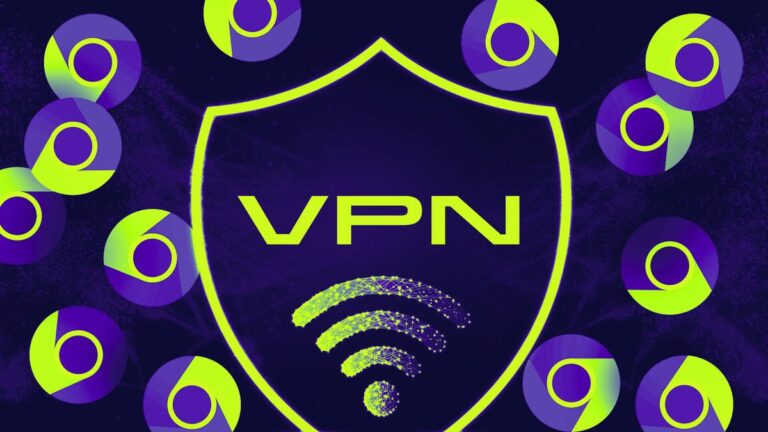Based on our years of testing and using VPNs across operating systems and browsers, these are the top factors you should consider when choosing a VPN for Chrome:
Platform compatibility
If you’re looking for a VPN for Chrome, your primary consideration will be whether the VPN offers a Chrome extension. Most of the top VPN providers offer plugins for Chrome and other browsers, but some do not. Check that the VPN you’re considering offers a Chrome extension before purchasing. Alternatively, you can use your VPN provider’s native device app for platforms like Windows, MacOS, Android, iOS/iPadOS and Linux, which works with an installed Chrome browser.
Privacy
A VPN’s Chrome extension doesn’t deliver the same level of privacy that a full VPN app does, but you’ll still get basic privacy protections through the plugin because it provides browser encryption and hides your IP address from the websites you visit. An important privacy feature to look out for in your VPN’s browser extension is WebRTC blocking, which can help prevent your IP address (and location) from leaking to the websites you’re visiting. We recommend a VPN with an audited no-logging policy — while zero-logging is tough to completely verify, it’s still an important trust signal. Most folks should be content with a solid no-logging policy, but folks with serious privacy concerns, like asylum seekers, political activists or investigative journalists may want to take things a step further by opting for a VPN provider with jurisdiction outside of the Five, Nine and 14 Eyes data-sharing alliances.
You should also look for modern encryption (AES-256 or ChaCha20, depending on the protocol, like WireGuard or OpenVPN). A reliable VPN should have a kill switch, which shuts off your internet if your virtual private network unexpectedly disconnects. Split tunneling is a neat privacy feature that lets you selectively use a VPN connection for some apps but not others, like routing your Google Chrome web browser through a VPN while excluding your Steam games client for faster download speeds.
Specialty VPN servers can improve your privacy. Double hop or multi-hop uses two VPN connections to make it even more difficult to trace your traffic back to its source when compared to a single VPN tunnel. Tor over VPN servers ( or Onion over VPN) rely on Tor — The Onion Router — to make it harder to trace your internet traffic back to its source. Obfuscated servers try to hide the fact that you’re using a VPN, which can be handy in situations like on school Wi-Fi where a VPN may not work properly, or when traveling to countries where VPNs are frowned upon. Think about your privacy needs and make sure your VPN provider offers those amenities.
Speed
Because they’re lightweight versions of their respective VPN apps, VPN browser extensions can offer faster speeds than the full VPN app. If you’re streaming, video conferencing or gaming, and only need basic browser privacy, then using the browser extension can be a great way to get faster speeds.
Server network
A large network of servers can be beneficial, especially if you’re looking to unblock streaming content from around the world. Check the VPN provider’s list of servers to ensure that it offers servers in locations from which you want to stream content. The best VPN providers offer between 90 to 100-plus countries to choose from, but even among the top-tier VPNs, it’s likely that their coverage in Africa, the Middle East and Asia will vary wildly from provider to provider. You should also make sure that your VPN provider actually unblocks the streaming sites you expect. The best way to check is to take advantage of a money-back guarantee and test the VPN out during the refund period. If you can’t get access to the streaming sites you want, you can always get your money back and try another VPN instead.
Cost
If you’re on a budget, then the price of your VPN will be an important consideration. Most VPNs cost around $10 to $15 per month, but you can enjoy greater savings and an overall better value if you opt for a yearly subscription plan. You can get a budget-friendly VPN for about $40 to $60 a year, but more expensive options can run up to $100 a year.
Customer support
Most of the best VPNs have helpful customer support options that are available around the clock. If you prefer getting answers from a real human, look for a provider that offers live chat or email support. If you prefer to find help on your own, look for a provider that has an extensive help section/knowledge base on its website that includes FAQs, troubleshooting guides and setup instructions.
Read the full article here

